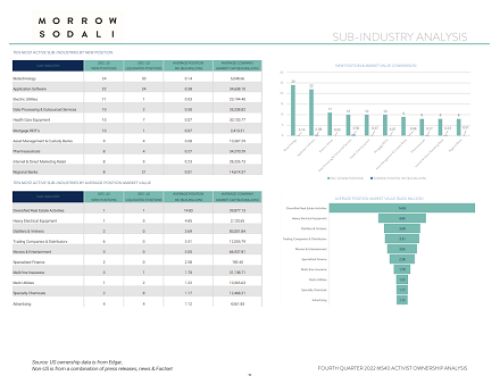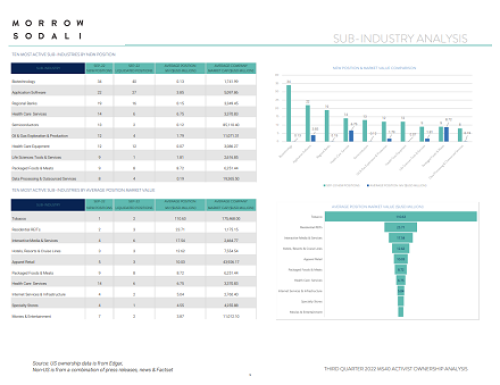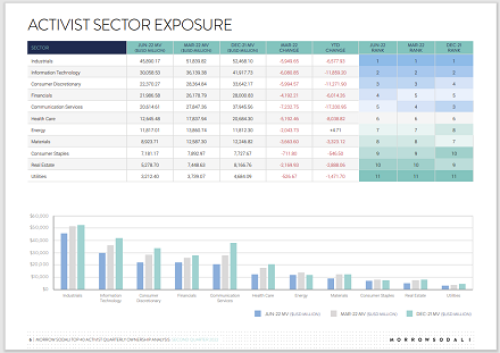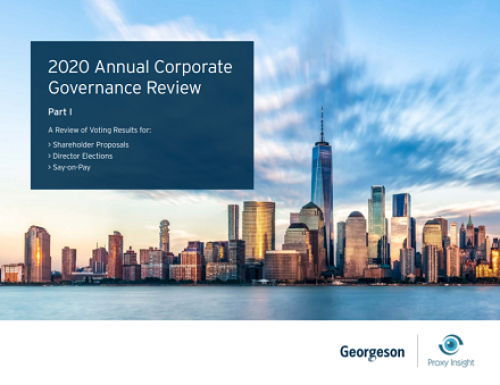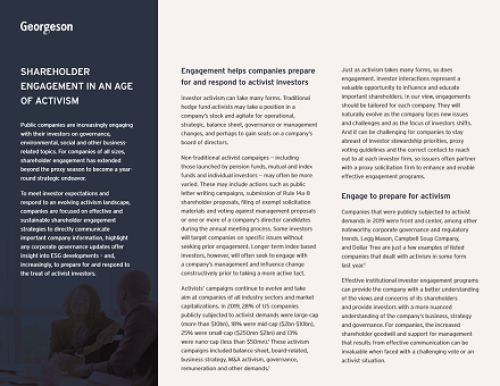Activists and long-term investors are finally engaging in a debate of sorts – with lessons for management
The first shareholder activists had it pretty easy. The fruit was low-hanging, fat and juicy. Managements were clumsy in responding to activist overtures and demands. And investors with different perspectives were very, very silent.
Times are very different now. Much of the fruit is hard to reach and not entirely ripe. And managements have mostly learned the basics of working with, and against, this new breed of investor. But what may be most important is the emergence of long-term investors that, through their proxy votes and public statements, are offering thoughtful alternative approaches to corporate strategy and capital management decisions.
We now see the beginnings of something academics have dreamed about: a reasoned investor debate about the ways in which a corporate should be governed and the goals to which its resources should be devoted. Underline the word ‘beginnings’; even when the debate takes place, it can be hard to find, and hard to separate from all the surrounding noise.
It’s not really a classic debate, given that the two sides don’t talk to each other, but rather to the boards of directors and executive managements of the companies whose shares they own. Nonetheless, the debate is real. Here are two not uncommon samples.
Sample 1
Activist: We want to name a couple of people to the board, to look out for the interests of shareholders.
Long-termer: All directors have a legal duty to look out for the interests of all shareholders. Don’t you mean look out for the interests of certain shareholders, ie, the ones that nominated them?
Activist: We need fresh blood on the board. The incumbents are CEO cronies who’ve been there forever.
Long-termer: Is the current board doing a good job? If yes, why change? If no, what capabilities would your nominees bring that the board currently lacks? How would the board function differently? And does the board already have a board rotation and retirement policy? Show us that new will be better.
Memo to management: Put your board-service limit policy out there where it’s easy to find, and demonstrate that it’s being implemented. Pay less attention to directors’ resumés (they’re all glittering); instead tell us what expertise or capability they bring to the board’s workings. Find ways to show the board does more than just rubber-stamp management actions.
Sample 2
Activist: The company has too much cash it has no use for. We want them to give it to us now, through dividends or share buybacks.
Long-termer: We like cash as much as you do. But companies need cash to fund current operations, to fund R&D and lots of other things. Show us your payouts wouldn’t cripple the company’s operations.
Activist: If it needed the money, it would have said so. Besides, it has almost no debt. In this interest rate environment, it should lever up and give us those proceeds, too.
Long-termer: Doesn’t the company have a strategic plan? Doesn’t the plan make clear its capital requirements? And its planned sources of capital and planned uses of capital, including distributions to shareholders? If it does those things, aren’t you really saying you want to throw out the board’s strategic plan in favor of one of your own? And if the plan doesn’t do those things, how do you know the company will survive your prescriptions?
Memo to management: Make sure your shareholders know and understand your strategic plan (most companies’ shareholders do not). Make sure, too, that the public disclosure of the plan is clear about sources and uses of capital. Debates about strategy are easier to win than debates about what to do with excess cash.
Management can, of course, engage with the advocates on both sides of these debates, but does not directly vote on the matters being discussed. Nonetheless, management does powerfully shape the debate, by the quality of the information it provides to all shareholders, activists, long-termers and everyone else.
Most activist issues and demands are subject to this sort of discussion. Activists can be very articulate about the near-term benefits of the actions they propose. Surprising to some, however, is that long-term investors can be equally articulate about the consequences of near-term actions that occur after the activists have departed. Note in particular index funds: because they can never sell, they are the ultimate long-term holders, and they no longer suffer short-termism in silence.
James MacGregor is vice chairman and a co-founder of Abernathy MacGregor, a leading corporate, strategic and financial communications consultancy




